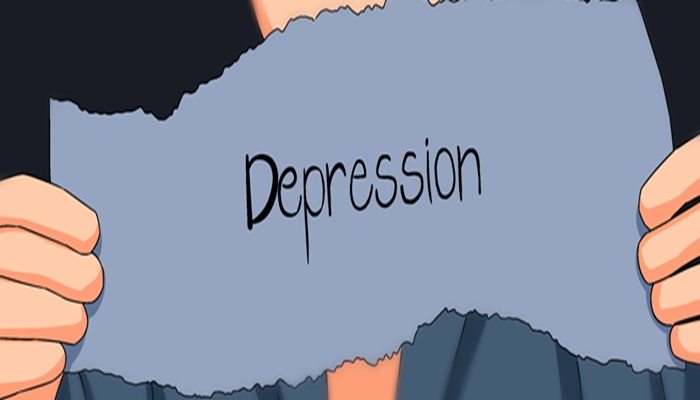Depression is a serious mental health condition that can have a significant impact on a person’s daily life, relationships, and overall well-being. While professional treatment is often necessary, there are several steps that can be taken at home to support someone with depression or to manage one’s own depressive symptoms. These home-based strategies can complement medical and therapeutic interventions and contribute to a better quality of life.
Establish a Routine
Regular Sleep Schedule
Maintaining a consistent sleep pattern is crucial. Go to bed and wake up at the same time every day, even on weekends. Create a relaxing bedtime routine, such as taking a warm bath, reading a calm book, or listening to soothing music. Avoid using electronic devices at least an hour before bed, as the blue light can disrupt sleep. Adequate sleep helps regulate mood, improves concentration, and provides the energy needed to face the day.
Balanced Meals and Hydration
Ensure a diet rich in nutrients, including fruits, vegetables, whole grains, lean proteins, and healthy fats. Avoid excessive consumption of sugary and processed foods, which can cause energy spikes and crashes. Stay hydrated by drinking plenty of water throughout the day. Proper nutrition provides the body and brain with the necessary fuel to function optimally and can have a positive impact on mood.
Daily Activities and Exercise
Incorporate light physical activity into the daily routine, such as going for a walk, doing gentle yoga, or dancing. Exercise releases endorphins, which are natural mood boosters. Start small and gradually increase the intensity and duration. Even just 15-30 minutes of activity a day can make a difference. Additionally, having a set schedule of daily activities, like household chores or hobbies, gives a sense of purpose and accomplishment.
Create a Supportive Environment
Open Communication
Encourage the person with depression to express their feelings. Listen without judgment and offer empathy and understanding. Let them know they are not alone and that you are there to support them. Avoid dismissive or critical remarks, and validate their experiences. Sometimes, just having someone to talk to can provide relief.
Reduce Stressors
Identify and minimize sources of stress at home. This could involve decluttering the living space, setting boundaries with work or other commitments, or finding ways to simplify daily tasks. A calm and organized environment can have a positive impact on mental state.
Engage in Enjoyable Activities
Plan activities that the person enjoys, such as watching a favorite movie, painting, listening to music, or playing a game. These activities can provide a distraction from negative thoughts and boost mood. Participating in activities together can also strengthen relationships and create positive memories.
Practice Mindfulness and Relaxation
Meditation and Deep Breathing
Set aside a few minutes each day for meditation or deep breathing exercises. Sit comfortably, close your eyes, and focus on your breath. Slowly inhale and exhale, letting go of distracting thoughts. Meditation helps increase self-awareness, reduces anxiety, and promotes a sense of calm. There are many guided meditation apps and videos available for beginners.
Progressive Muscle Relaxation
Lie down and tense and then relax each muscle group in the body, starting from the toes and working up to the head. This technique helps relieve physical tension, which is often associated with depression. Pay attention to the difference between the tense and relaxed state of each muscle, and focus on the feeling of relaxation.
Encourage Social Interaction
Stay Connected with Loved Ones
Arrange regular phone calls, video chats, or in-person visits with family and friends. Social support is vital in combating depression. Even if the person doesn’t feel like socializing at first, gently encourage them to engage. Sometimes, just being around others can lift their mood.
Join Support Groups
There are many online and local support groups for people with depression. These groups provide a safe space to share experiences, learn from others, and feel a sense of community. Encourage the person to attend or participate in these groups, which can offer valuable insights and support.
Seek Professional Help if Needed
Consult a Doctor or Therapist
If the depressive symptoms persist or worsen, it’s important to seek professional help. A doctor can conduct a proper evaluation and recommend appropriate treatment, such as therapy or medication. There are also telehealth options available, making it easier to access mental health services from home. Don’t hesitate to reach out for professional support, as early intervention can lead to better outcomes.
Conclusion
Helping with depression at home requires patience, understanding, and a holistic approach. By establishing a routine, creating a supportive environment, practicing mindfulness and relaxation, and encouraging social interaction, it’s possible to make a positive difference in the life of someone with depression or manage one’s own symptoms more effectively. However, it’s important to remember that these home-based strategies should be used in conjunction with professional medical and mental health care. With the right support and interventions, it is possible to navigate through the difficult times of depression and move towards recovery and improved well-being.
Related topics:
- Can You Be Diagnosed With Depression Under 18?
- How To Beat Depression Fatigue?
- How To Beat Postpartum Depression?


